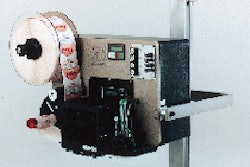FDA retains final authority but, by accepting substantiation from other health authorities, can speed up approval for health claims. The food industry was disappointed at the absence of other reforms in the bill, including national uniformity for health warning requirements on labels, further reform of the Delaney Clause, and revisions to the review and approval process for indirect food additives. The bill did contain national uni-formity for the regulation of cosmetics and over-the-counter drugs, whereby FDA regulations preempt state and local safety and labeling requirements. By including reauthorization of the Prescription Drug User Fee Act which expires in September, Sen. Jim Jeffords (R-VT) all but guaranteed the bill will get beyond committee passage. On the House side, Rep. Edward Whitfield (R-KY), who serves on the Commerce Committee, has indicated his interest in pursuing food-related reform measures.
Reforming FDA
Congress has picked up the pace on FDA reform, with legislation moving in both the House and Senate. Strongly backed by food manufacturers is language in the Senate bill providing that health claims on food labels would be presumed to be authorized if the claim is based on, and consistent with, findings of a federal health agency or of the National Academy of Sciences.
Jul 31, 1997
Machinery Basics
Annual Outlook Report: Workforce
Hiring remains a major challenge in packaging, with 78% struggling to fill unskilled roles and 84% lacking experienced workers. As automation grows, companies must rethink hiring and training. Download the full report for key insights.
Download Now
Get a jump on your 2026 packaging & processing goals at PACK EXPO East.
Be the first to find what’s next in packaging & processing at PACK EXPO East. See new solutions from 500 exhibitors, uncover creative ideas for 40+ verticals and gain inspiration from free sessions on industry trends—all in one trip to Philadelphia.
REGISTER NOW & SAVE
Downloads






















